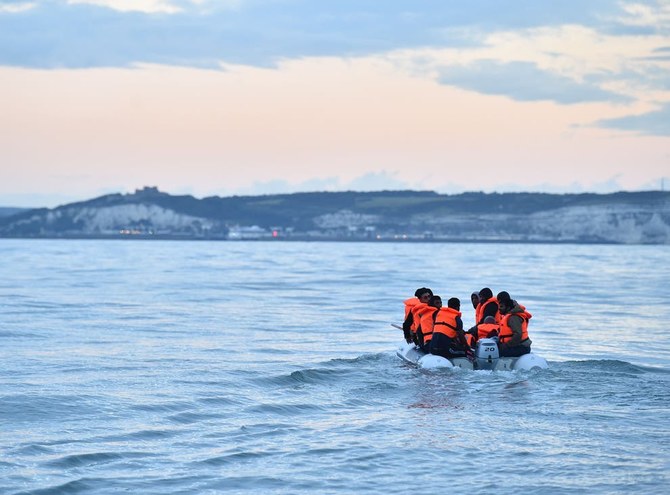LONDON: An Iranian who testified against his country in a human rights tribunal fears assassination if he is deported under the UK’s controversial Rwanda policy, the BBC reported.
After testifying to a UK-based rights group tribunal investigating alleged Iranian atrocities during protests in 2019, the ex-police commander spent several years hiding in Turkey before making the English Channel crossing and arriving in Britain to claim asylum on May 14.
However, following changes to asylum policy announced by the UK earlier this year, he is being housed in a detention center near Gatwick and was informed on May 31 that he would be sent on a direct flight to the Rwandan capital Kigali on Tuesday, and that any appeal would be “exercised only on limited grounds and only from outside the United Kingdom.”
Speaking to the BBC by telephone from the detention center, he said he “feared for his life” if deported to Rwanda, where he claimed Iran’s Islamic Revolutionary Guard Corps operates, and that he had refused to take malaria pills prescribed in preparation for the trip.
He added that he had told officers that, “you can only send my dead body to Rwanda. Why Rwanda? I’d rather be sent to Iran, at least, I know the consequences. I can’t live with uncertainty and in fear anymore.”
Despite his face being covered during the tribunal testimony, he said Iran’s security forces were somehow able to identify him and subsequently persecuted his family.
“My family in Iran has paid a heavy price and this (deportation) decision means all they went through was in vain. They pressured on my family so that I return, and they can capture me,” he told the BBC.
One of the tribunal’s organizers, Shadi Sadr, said the man’s life was, “in real danger as Iran’s Revolutionary Guard, which is known for kidnapping and assassinating dissidents, operates in many African countries,” adding that the Iranian was suffering from a heart condition “confirmed by a Home Office medical professional.”
British Home Secretary Priti Patel has continued to defend the much-maligned deportation program, describing the partnership with Rwanda as “a key part of our strategy to overhaul the broken asylum system and break the evil people-smugglers’ business model.”
Meanwhile, a Home Office spokesperson told BBC Persian that “in Rwanda, (deportees) will be given the opportunity to rebuild their lives.”
Ex-Iranian police chief fears assassination over human rights tribunal testimony




